20 Best Doctor of Education (Ed.D.) Graduate Schools

Find your perfect college degree
A Doctorate in Education or an Ed.D. (or D.Ed.) degree encompasses several educational focus areas beyond teaching. It does include teaching strands as well.
A Doctor of Education (EdD) degree is a type of advanced professional doctorate degree that prepares individuals for roles as education leaders, researchers, and educators within both K-12 and higher education settings.
EdD programs typically require students to have prior knowledge of teaching and educational policies before admission, so it is usually ideal for individuals with an educational background, such as teaching experience or credentials or an advanced degree in the field of education.
Students enrolled in an EdD program will be expected to study and research curriculum design, assessment, and leadership development. The degree program typically takes three to four years to complete, with coursework being tailored to the specific field or focus of the student’s interest.
With an EdD degree, graduates will have the necessary credentials to pursue opportunities in teaching, administration, and research within public schools, universities, companies, or government organizations.
For professionals aspiring to hold positions as university or college presidents, college deans, provosts, administrators, K-12 principals, district superintendents, curriculum designers and consultants, program implementors and evaluators, or work for the government as policymakers, or non-profits as policy advocates and analysts, then a doctorate in education is the way to go.
Quick audio summary:

The National Center for Educational Statistics suggests that education is one of the top five doctorate degrees conferred from 2022 to 2032. In fact, if professional doctorates such as those from the health sciences and legal studies were excluded, education doctorates rank atop and have seen a slow but steady rise in the number of graduates over the ten-year period.
So, why is this? Why the apparent growth?
One can infer that this is because most higher-learning institutions require their faculty to have advanced degrees. A master’s degree would only get an educator so far. The next sensible option is earning a Ph.D. or an Ed.D. in education and related strands, like higher education, educational policy, leadership, administration, K-12 leadership, curriculum, instruction, etc.
To avoid confusion between a Ph.D. in education and an Ed.D., the table below summarizes the differences between the two:
| Ed.D. in Education (or related programs like Leadership, Administration, Policy or Higher Education) | Ph.D. in Education(with or without a sub-specialty like STEM, arts, or health education) | |
| Focus | Research, adult teaching, leadership and solution pipelining and implementation to educational issues | Research and higher academic education |
| Who is it for? | Aspiring leaders (deans, presidents, chancellors), principals, administrators, policymakers and analysts (research), research educators | K-12 teachers aspiring to teach in higher education and aspiring researchers |
| Post-graduate marketability | Across industries, not just in the field of education | Academia, whether as a researcher or educator |
Would you like to become a school principal? Check this out:
METHODOLOGY
The Best Doctor of General Education Graduate Schools were picked based on these factors:
- Only in-campus and hybrid programs were included in the list.
- Preference was given to programs that offer more strands or concentrations leading to the Ed.D. degree. This indicates the department or the school’s recognition of the other facets of education and that different skill sets and knowledge bases are required for each sub-discipline.
- More than the research centers and institutes, preference was given to schools with existing collaborations or partnerships outside their mother universities. Community and interschool partnerships are essential to education programs, as this paves the way for students to land reputable and valuable internships, research opportunities, or even paid work.
- Other standout features such as immersion opportunities, both local and abroad, the publication of peer-reviewed journals, or other relevant initiatives are also considered.
BEST DOCTOR OF GENERAL EDUCATION GRADUATE SCHOOLS
Columbia University – Teacher’s College

New York, NY
Doctor of Education in Curriculum and Teaching (Ed.D.)
The Teacher’s College (TC) was founded in 1880, but it wasn’t until the last decade of the 19th century that it would be related to its current parent school, Columbia University. It also quickly transformed from being a purely normal school to include other programs, such as health sciences, psychology, and social sciences, for a more holistic approach to education, or, in the school’s own words: “how people learn, and how they should be taught, in all fields.”
- The Ed.D. program in Curriculum and Teaching offers seven specializations: Early Childhood Education and Policy, Educational Leadership, and Curriculum Studies. The foci on Gifted Education and Urban and Multicultural Education are some of the unique specializations offered by the program.
- Students can tailor their curriculum according to their chosen concentration. Only three courses are required for all concentrations: Theory and Inquiry in Curriculum and Teaching, Probability and Statistical Inference, and Dissertation Seminar in Curriculum and Teaching.
- Ninety (90) credits are required to complete the program. Up to 40 credits may be applied for a transfer. Program applicants must have teaching experience of at least three (3) years.
- Students may take additional courses should they wish to continue practicing teaching after earning the Ed.D. degree.
- Students can explore various funding options available via TC to support their studies.
Standout Features of the Program:
In true TC fashion, the school has close to 80 research centers and labs that combine interdisciplinary studies and innovations in education, health science, psychology, information science, and social science.
TC has various initiatives in partnership with Columbia University, the National Science Foundation, and other renowned institutions and agencies that highlight the vital role of education on relevant topics like climate change, gun control, and national security.
University of California Berkeley

Berkeley, CA
Doctor of Education (Ed.D.) in Leaders for Equity and Democracy (LEAD)
Berkeley’s Department of Pedagogy was instituted in 1892. In 1900, the department was integrated into the graduate school division, thus, the name “Graduate School of Education” (GSE). The Ed.D. degree was launched in 1922. In 2021, GSE revamped the Ed.D. program, which used to focus solely on Educational Leadership. The program was enhanced and is now known as the Leaders for Equity and Democracy, or LEAD.
- LEAD best suits professionals who are in the administrative and leadership side of education. The program is all about identifying challenges in the education sector, such as social inequality or policy loopholes, and applying evidence-based solutions to these problems.
- It is a three-year hybrid program that utilizes both cohort-type instruction and flexible learning. Students can enroll in electives offered within the GSE, UC Berkeley, and partner schools such as UC Davis, Stanford, and Mills College.
- While the program is flexible to accommodate working professionals, a four-week residency (or longer) is required.
- Aside from fellowships, special financial aid is available to student parents and caregivers. Travel grants are also available to students participating in conferences.
Standout Features of the Program:
The program is highly selective and only 12 students are accepted for every cohort. Since the program is both intensive and supportive (not spoon-feeding), having a small cohort ensures that each student is well taken care of by the LEAD faculty to graduation.
Berkeley GSE is home to six research centers, including the Policy Analysis for California Education (PACE). The school also regularly publishes the peer-reviewed journal, Berkeley Review of Education, which tackles educational issues and innovations, and other relevant interdisciplinary topics.
University of Pittsburgh
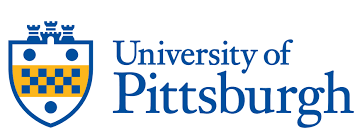
Pittsburgh, PA
The School of Education was established by the University of Pittsburgh (or “Pitt”) in 1910. In the 1930s, the school began offering advanced degrees, such as an M.Ed., Ph.D., and Ed.D. degrees. Today, it houses three departments, focusing on pedagogy and its leadership and policy facets.
- The Doctor of Education program is delivered in a hybrid format and offers eight concentrations, including Educational Leadership, Urban Education, STEM, and Out-of-school Learning.
- The in-person sessions utilize a cohort model of instruction, which meets one Saturday a month.
- The program requires the completion of 90 credits, with up to 30 credits allowed for transfer.
- The curriculum features an 18-credit requirement in Scholarly Practice, which is equivalent to a capstone research project. It also requires 3-unit laboratory coursework, either an internship activity, an international immersion, or professional work.
- There are several fellowships and scholarships available for students, as well as TA and RA roles, to aid in funding.
Standout Features of the Program:
The School of Education houses the Center for Urban Education and the Office of Child Development, which could be instrumental to Ed.D. students writing up their research projects. Both centers encourage collaborative efforts between Pitt and the community to transform educational delivery for the ever-changing profile of Pre-K-12 students.
The Falk Laboratory School used to be known as The School of Childhood during the 1920s, which taught English to immigrants. Today, the Falk School serves two main purposes: to educate K-8 students and serve as a training ground for aspiring teachers (undergrad and master’s degree students) enrolled at Pitt.
University of Pennsylvania (Penn GSE)

Philadelphia, PA
Doctor of Education (Ed.D., various programs)
Penn GSE was officially instituted in 1914, although Education courses were taught at Penn as early as 1893. Graduate degrees were first offered and conferred in 1943.
- Penn GSE has seven education doctorate programs that cater to specific roles in the field of education.
- The following programs are for those who aspire to grow into educational leadership, management or policy-making, or analysis roles:
- Teaching, Learning, and Teacher Education Ed.D. (full-time or part-time)
- Higher Education Ed.D. (part-time)
- Penn Chief Learning Officer Ed.D. (executive style)
- Mid-Career Doctoral Program in Educational Leadership – Ed.D. (executive style)
- The executive programs are held on campus once a week.
- The programs below are for those who want to teach and research language or literature in higher academia:
- Educational Linguistics Ed.D. (part-time)
- Reading/Writing/Literacy Ed.D. (full-time or part-time)
- These programs span from two years (for executive programs) to six to nine years.
- Funding may come primarily from research assistantships. Other opportunities may come from external fellowships and scholarships, with some available specifically to minority students, like Hispanics or immigrants.
Standout Features of the Program:
Penn GSE currently has 38 research centers that foster constant collaboration between the school, the community, and the government through research and dialogue. An example is the Office of School and Community Engagement. The centers are helmed by Penn GSE faculty.
The Educator’s Playbook is a live collection of all published research from Penn GSE faculty and students. The resources posted are free to access by anyone. A free and regular subscription service is also available, so new posts and resources can be directly sent via email.
University of Washington – Seattle

Seattle, WA
Doctor of Education (Ed.D., various programs)
University of Washington (UW) pioneered the concept of a “Normal curriculum” in 1878, leading to the institution of a “Normal College” in 1892, an educational institution specifically designed for grooming aspiring teachers. The official establishment of the College of Education at UW was in 1914.
- The College of Education offers three Ed.D. programs in teaching and curriculum design. These are:
- Language, Literacy, and Culture
- Mathematics or Science Education
- Teacher Quality and Teacher Education
- It also offers the Leadership for Learning (L4L) Ed.D. program for experienced educators aspiring to move up into leadership and policy-related roles in education.
- As of writing, only the L4L program is accepting students for the Fall 2022 term.
- Students under the L4L program learn about leadership ethics and equity, evidenced-based leadership, and organizational leadership across educational ecosystems.
- Graduates of the L4L Ed.D. degree may undertake a superintendent internship, which is required for the Initial Superintendent Certificate issued by the state of Washington.
Standout Features of the Program:
There are several ways students can explore to help with their funding, such as scholarships and fellowships. As for research work, UW Education houses 33 centers and institutes and 25 research areas, which include studies on Technology in Teaching and Learning, Multicultural Education, and Educational Policy, to name a few.
UW Education holds regular podcasts that are posted on Soundcloud. Topics are usually about faculty and student research projects and insights on issues and challenges currently plaguing the field of education. Innovations within the field are also discussed on the platform. Previous students are also invited for their insights from their capstone experiences. This is a valuable reference for current students who are currently preparing for their dissertation work.
University of Virginia

Charlottesville, VA
Doctor of Education (Ed.D., various programs)
John D. Rockefeller, Sr., doled out the funding for a School of Education to be established specifically – upon Rockefeller’s request – at the University of Virginia in 1905. At present, it is known as the School of Education and Human Development (SEHD), which houses four departments, including the Departments of Curriculum, Instruction and Special Education (CISE) and Education Leadership, Foundations and Policy (ELFP).
- The Doctor of Education is a joint offering of the two aforementioned departments. It offers three program strands:
- Administration and Supervision
- Higher Education Administration
- Both of these are offered by the ELFP Department
- Curriculum and Instruction
- Offered by the CISE Department. This strand offers seven areas of focus, including ESL, Instructional Technology, and Gifted Education, to name a few.
- All Ed.D. students take the course “Educational Inquiry for Practitioners.”
- A capstone project is required, which accounts for ten credits. A 6-credit field study is required for students under the C&I strand. All strands require the completion of 72 credit units.
- Merit-based and need-based grants and awards are available to all students. Student employees can avail themselves of tuition discounts.
Standout Features of the Program:
The University of Virginia-University of Melbourne partnership allows students of the former to apply for UVa’s Ed.D. – C&I program even before they complete their master’s degree. They must be enrolled in the Master of Education in Evidence-Based Teaching program at UM to qualify for application at UVa.
UVa’s SEHD houses six research centers, including the acclaimed EdPolicyWorks. It also houses 25 research labs that combine education studies (traditional, health, advanced, and special), social justice, psychology, physiology, and design thinking or modern problem-solving.
University of Georgia
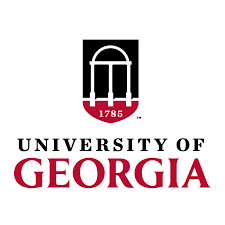
Athens, GA
Doctor of Education (Ed.D., various programs)
The University of Georgia (UGA) is the first publicly funded higher learning institution in the country, founded in 1785. The UGA Graduate School was formally opened in 1910. Today, it currently offers seven doctors of education programs, with areas of focus ranging from leadership to educational policy.
- The Graduate School offers five programs leading to the Ed.D. degree:
- Educational Administration and Policy – for aspiring principals and superintendents
- Learning, Leadership, and Organizational Development – for aspiring managers and leaders with the option of working across industries, not only in education
- Higher Education (executive style) – for professionals posed to take on educational leadership or directorship roles
- Workforce Education – a specialized program for aspiring leaders and administrators of career and technical or vocational schools
- Science Education – for science education practitioners looking to teach the subject in higher academia
- A dissertation is required for all programs.
- Student funding can come from various sources like assistantships, grants, fellowships, scholarships, and awards. Student assistants are required to clock in at least 13 hours of work a week.
Standout Features of the Program:
Students can utilize UGA Elements, the university’s web-based repository of all student and faculty output, such as research and editorials. It also houses information on scholarships and funding, as well as other activities within and involving UGA.
The UGA Advantage (also referred to as “Double Dawgs”) is a 4+1 program designed for exceptional students seeking to complete their undergraduate and graduate studies in five years (or less). It is essentially a dual-degree program that is beneficial to students both time-wise and cost-wise. To date, more than 100 programs are available in the Double Dawg catalog.
University of South Dakota

Vermillion, SD
Doctor of Education (Ed.D., various programs)
The University of South Dakota came to be in 1862. Today, it boasts seven schools, including the Schools of Law and Medicine, the lone institutes of its kind in the state, and the School of Education (SoE). The SoE has five divisions, with the Division of Curriculum and Instruction and the Division of Educational Leadership offering the Ed.D. programs of the school.
- These two divisions offer a combined six programs leading to the Ed.D. degree:
- The specificity of these programs allows students to easily choose an area of focus relevant to their career goals.
- All programs require the completion of 90 credit units and dissertation work.
- Students can apply to any of the four scholarships available through the SoE for funding.
Standout Features of the Program:
Graduate assistantship work is very much welcome in the SOE. Each division hires its assistants who help the faculty in research, teaching, lab work, curriculum and course design, grant application reviews, and other related tasks. Assistants receive a stipend along with tuition discounts. TAs get paid per course.
Students can apply for administrative internships, which allow them to do supervised work in K-12 principal, superintendent, curriculum director, or SPED director roles. Applicants must be currently enrolled in the respective Ed.D. program and have teaching experience of no less than three years.
Indiana University Bloomington

Bloomington, IN
Doctor of Education (Ed.D., various programs)
IU’s School of Education (SoE) has been around since the early 1900s, but it wasn’t until 1923 that it grew into its own when it became independent from the College of Arts and Sciences. It would soon confer degrees in the field, with the Ed.D. degree being conferred for the first time in 1932.
- The SoE offers several strands leading to the Ed.D. degree, which includes:
- Art Education
- Mathematics Education
- Science Education
- These strands are suitable for educators leaning toward curriculum design. They can still practice teaching, armed with a solid research background in their chosen area.
- Higher Education
- Educational Leadership
- These strands are suitable for aspiring educational administrators, policymakers, or leaders.
- All program strands require the completion of 60 credit units, including a dissertation project.
- There are three internal funding opportunities open to students. External funding or fellowships may also be availed but must be under the Office of Research, Development, and Innovation guidance.
Standout Features of the Program:
Ed.D. students can engage in the three research centers of the SoE, which focus on three main areas: educational policy, research, and innovations. The SoE also plays an active role in research initiatives. For example, since 2015, the Carnegie Classification of Higher Education (CCIHE) is now located within the Center for Postsecondary Research, one of the three SoE research centers.
IU’s external immersion for teachers, or the Global Gateway, is one of the most acclaimed in the field of education and teaching instruction. Opportunities are available for aspiring teachers to gain experience with different cultures, such as the Navajos, and locales, such as urban locales or overseas.
Vanderbilt University – Peabody College

Nashville, TN
Doctor of Education in Leadership and Policy (K-12 or Higher Education) (Ed.D.)
Peabody College was established in 1785 under a different name. In 1889, it changed its name to Peabody Normal College to honor its benefactor, George Peabody. The name change also signified the school’s heightened focus on teaching education-related degrees. In 1979, for financial reasons, Peabody merged with Vanderbilt University, its longtime educational partner.
- The college offers two in-campus tracks leading to the Ed.D. degree:
- K–12 Education Leadership and Policy (in-campus)
- Higher Education Leadership and Policy (in-campus)
- Classes are held on Fridays and Saturdays, so students can still work while pursuing the degree.
- The degree requires the completion of 84 credit units, 30 of which can be accepted as transfer credits from a master’s degree.
- An independent research work culminates the program. Students can choose from the department’s capstone partners, colleges, and universities within Tennessee and nearby states.
- Applicants to the Ed.D. program are automatically in the running for merit aid. Should they not get the aid upon admission, outside fellowships and scholarships are also available.
Standout Features of the Program:
Aside from the capstone partners, Ed.D. students can choose one of Peabody’s nine research centers. Among these are the IRIS Center and the National Center for Leadership in Intensive Intervention (NCLII), funded by the Department of Education.
Peabody College faculty are making their mark in education research and policy. The Department of Leadership, Policy, and Organizations faculty, which houses the Ed.D. degrees, comprises 15 fellows of the American Educational Research Association and four members of the National Academy of Education.
The University of Mississippi

University, MS
Doctor of Education (Ed.D., various programs)
Ole Miss School of Education (SOE) was established in 1903. Today, it offers undergraduate and graduate programs focusing on the various levels of education, educational counseling, and educational leadership.
- SOE offers two strands leading to the Ed.D. degree: K12 Leadership and Teacher Education.
- The Teacher Education strand offers four specializations representing the different levels of K-12 education: Early Childhood, Elementary, Special and Secondary education.
- Students under this strand may apply to the Teacher Education Assistance for College and Higher Education Grants (TEACH), specifically intended for higher education students from the undergraduate to the graduate levels who specialize in pedagogy.
- The K12 Leadership strand is a hybrid program that utilizes a cohort model that meets for six weekends. The approach to the curriculum is problem-based, combining advanced research and organizational leadership skills.
- Students under this strand may apply to the North Mississippi Education Consortium (NMEC) Graduate Leadership scholarship, where up to 50% of tuition subsidy may be granted.
Standout Features of the Program:
SOE houses several research centers, four of which are closely related to the aforementioned Ed.D. strands. These are:
- Center for Excellence in Literacy Instruction
- Center for Mathematics and Science Education
- Graduate Center – Study of Early Learning
- These three centers can be beneficial to Ed.D. students under the Teaching Education strand.
- Educational Research and Design
- These can be beneficial to students of both Ed.D. strands, but more so for K12 Leadership students, as it concentrates on research and problem-solving.
SoE is home to the Willie Price Lab School, a preschool facility for students aged 3 to 5, and a practicum site for SoE students focusing on early childhood development and learning.
Harvard University
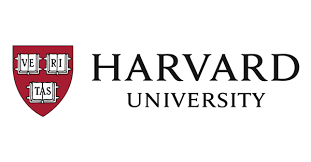
Cambridge, MA
Doctor of Education Leadership (Ed.L.D.)
Founded in 1920, HGSE is the first Harvard school to confer degrees to female students. One year later, HGSE became the first school in the country to offer and confer the Doctor of Education degree (Ed.D).
- HGSE offers the three-year Doctor of Education Leadership program, which focuses on grooming leaders for the management, administration, and transformation of Pre-K-12 schools, especially public schools.
- The program employs a cohort-type model of instruction, accommodating a maximum of 25 full-time students.
- The program’s curriculum collaborates with three Harvard schools – HGSE, Harvard Business School, and the Harvard Kennedy School. The curriculum combines concepts of pedagogy, management, organizational leadership, and policy analysis and administration.
- Student funding can come from student employment, stipends or allowances, and the required paid residency in the third year of study. Fellowships and grants specifically available to HGSE students can also be applied to for augmented funding.
Standout Features of the Program:
Third-year students must choose an HGSE partner organization to do their 10-month paid residency as part of the capstone requirement. They are expected to be involved in the organization’s management, strategic, administrative, and planning activities (and other related activities) and create their written capstone from experience. There are currently more than 20 organizations included in the list (which grows by the year), which includes public schools, private organizations, and government agencies related to educational policy.
HGSE has its publishing group, the Harvard Education Publishing Group (HEPG), which houses the Harvard Education Press, Harvard Educational Revie, and Harvard Education Letter (bi-monthly newsletter). HGSE also has its weekly podcast called Harvard EdCast, which features discussions on how education can be transformed to impact learners of every age.
University of California Los Angeles (UCLA)
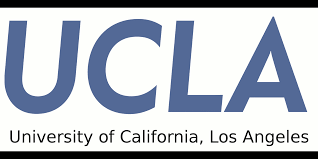
Los Angeles, CA
Doctor of Education – Educational Leadership Program (Ed.D.)
UCLA’s School of Education & Information Sciences (Ed&IS) was established in 1881 under a different name. It took on its present name in 1994, with separate departments for Education and Information Studies. The Department of Education currently offers more than 10 degree programs, with a concentration in graduate studies.
- The Ed.D. degree in Educational Leadership Program utilizes a cohort model of instruction that spans three years. Classes are held on Thursdays and Saturdays.
- Admission to the program requires teaching experience in PreK-12 levels of at least five years. Applicants must be currently employed full-time upon admission.
- The curriculum prepares students for leadership roles or a career in research in the field of education. It culminates with a dissertation requirement, the preparation for which starts in Year 2.
- At present, there are close to 40 UCLA and external fellowships available to Ed&IS doctoral students. Students can also undertake departmental or campus work as RAs, TAs, tutors, readers, and mentors to supplement their funding. Scholarships and grants are also available.
Standout Features of the Program:
There are close to 25 Ed&IS research centers, with more than half dedicated to education research. However, the research centers are complementary and integrative. Thus, it manifests the goal of transforming education through information infrastructures. This synergistic relationship is best exemplified by the Center for Knowledge Infrastructures and the Digital Cultures Lab, to name a few.
UCLA-Ed&IS has several partnerships with local community schools where evidenced-based practices are employed. These include the UCLA Lab School and the UCLA Community School, to name a few.
University of Texas Austin
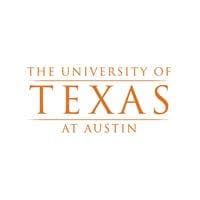
Austin, Texas
Doctor of Education- Educational Leadership (Ed.D.)
The University of Texas (UT) Austin’s College of Education was instituted in 1891. Today, it houses five departments that tap into the several facets of education, especially modern facets such as Health Education, Educational Psychology, and Special Education.
- The Department of Educational Leadership and Policy (DELP) offers only two Ed.D. programs from the College of Education: the Ed.D. in Higher Education Leadership (executive program) and the Ed.D. in Educational Leadership.
- The Ed.D. degree in Educational Leadership is offered through the Cooperative Superintendency Program. Applicants must have formal training or education in middle management, plus experience as a principal or school administrator of at least two years. The program starts only every summer term.
- The program’s curriculum is broken down into 63 credits of coursework and 69 credits of dissertation work. The coursework features courses on Social Science, Treatise, electives, research, and the Superintendent Specialization, which comprises the bulk at 33 credit hours.
- Students can apply for internal (under the Graduate school and the College of Education) and external fellowships. Students can also work as editorial assistants for increased funding.
Standout Features of the Program:
DELP is home to five research centers and institutes that focus on student engagement, organizational development, education innovations, and policy analysis. It also hosts Project MALES (Mentoring to Achieve Latino Educational Success), dedicated to uplifting the Latino student demographic through mentorship and support.
UT Graduate students can participate in the “Present Your Ph.D. Thesis to a 12-Year-old” initiative. The program seeks to engage K-12 students by using simplified versions of dissertations. This would hopefully get young students interested in research and educational studies.
University of Southern California (USC) – Rossier School of Education

Los Angeles, CA
Doctor of Education – Educational Leadership (Ed.D.)
USC was established in 1880, while its Department of Pedagogy was established a decade later. It then changed its name to the Department of Education in 1909. Another decade later, the School of Education was launched, later named the Rossier School of Education to honor its biggest benefactor, Barbara, and Roger Rossier.
- The Ed.D. program in Educational Leadership is the only in-campus Ed.D. offering from the Rossier School. It requires the completion of 43 credits of coursework.
- Applicants to the program must have at least three years of work experience.
- Classes are held every evening and at least once a week, so students’ professional life is not impacted.
- There are four concentrations to choose from:
- Educational Psychology
- K-12 Leadership in Urban School Settings
- Leading Instructional Change
- Higher Education Administration
- Funding can come from assistantship work, Rossier and USC scholarships, and outside fellowships.
Standout Features of the Program:
The dissertation requirement to complete the program can be done in practice (at work). Doctoral candidates must identify current challenges in pedagogy and educational administration and use these as their dissertation topic. The output may then come in any of the following forms: a dissertation that is five chapters long, a curriculum design addressing the problem, or a visual presentation.
The Rossier School embraces diversity and inclusivity. Only 34% of its student population are Caucasians. The rest of the population comprises other minorities of Hispanic, African American, Asian, and Pacific Islander ethnicities. Also, 46% of enrolled students are first-generation students, indicating Rossier’s meritocratic attitude toward admission.
Ohio State University

Columbus, OH
Doctorate of Education in Educational Studies (Ed.D.)
Ohio State University was established in 1870. In 1895, the College of Education and Human Ecology (CEHE) was formally launched. Today, it houses three departments, with the Department of Educational Studies offering the college’s two of three Ed.D. degrees.
- CEHE offers the Ed.D. program in Educational Studies, which is a three-year, cohort-type program.
- The program offers two areas of concentration: Higher Education and Student Affairs (HESA) and Educational Administration (EA).
- The HESA track is geared towards aspiring leaders in institutions like colleges and universities. Aside from research skills, they are also educated on organizational leadership, international affairs, and management of the adult student demographic.
- The EA track is focused on grooming aspiring K-12 principals, district superintendents, policymakers, and advocates.
- The minimum required credits for completion are 54 and 51 hours for the HESA and EA tracks, respectively. Both tracks require a dissertation for graduation.
- Funding can come from assistantship work, scholarships, and fellowships. The National Academy of Education has several fellowships available through the CEHE office.
Standout Feature of the Program:
The faculty of the HESA and EA tracks are active in research. 13 EA and 10 HESA faculty members have published their studies on the different facets and issues in education. This is a testament to the research expertise of both faculties, of which students under both programs can take advantage.
The CEHE offers the First Education Experience Program (FEEP), an elective course open to undergraduate and graduate students who are curious about what being a student of education is like. The course, which could last from eight to thirteen sessions, is conducted through any department’s partner schools.
University of North Carolina – Chapel Hill

Chapel Hill, NC
Doctor of Education – Educational Leadership (Ed.D.)
UNC-Chapel Hill has been grooming aspiring teachers since its establishment in 1795. In 1913, the School of Education was formally launched. Today, it offers programs that tap into the various aspects of modern education – policy, technology, health and safety, pedagogy, and physiology.
- The Ed.D. in Educational Leadership is the lone doctor of education program in the School of Education.
- Students can enroll on a part-time basis. Classes are held evenings.
- The program requires 54 credit units and a dissertation project.
- Applicants must have a master’s degree in educational administration or leadership. Otherwise, an additional nine credit units must be taken to fulfill this requirement.
- Assistantship work is available at the departmental and graduate school levels. Fellowships, grants, and scholarships are also available for increased funding.
Standout Features of the Program:
The School of Education has partnerships with other UNC-Chapel Hill schools, such as the School of Science and Mathematics, to promote STEM education research. The School of Educational Research is also a hub for students preparing for their research work.
UNC-SoE regularly publishes a peer-reviewed journal entitled “Edge: Carolina Education Review.” This journal is the landing spot for research done by SoE faculty.
Pennsylvania State University

State College, PA
Pennsylvania State University, or Penn State, was established in 1855 as the sole land-grant university of the state. The College of Education was officially launched in 1923. Today, it houses four departments, three of which offer programs that lead to the Ed.D. degree.
- The Ed.D. degree has three strands:
- Lifelong Learning and Adult Education (60 credits) – a multi-faceted strand that is designed for students who aspire to go into various educational careers in higher education, such as professorship, curriculum consultancy, and design, leadership, program planning, and evaluation, or administration
- Higher Education (60 credits) – a program with a heightened focus on leadership and administration for higher learning institutions
- Educational Leadership (90 credits) – a program with a heightened focus on leadership and administration for K-12 institutions. This program is also for aspiring superintendents and other school district roles.
- All programs culminate with a dissertation for completion.
- Penn State provides students with resources for various funding opportunities. Grants for doctoral candidates, conference participation, assistantship, or fellowship work are also available.
Standout Features of the Program:
The College of Education houses 14 research centers, which Ed.D. students can engage in for their dissertations. Many of these centers and institutes are funded through government grants. Research and initiatives from these government-funded centers are coordinated with the respective federal or local agencies for implementation on the ground, i.e., schools and districts.
Penn State has a long history of pumping out research instrumental to public service. The College of Education follows this tradition with its long line of active research projects from the faculty of each of the four departments. Many of the research studies tackle STEM education, school-community collaborations, the evolution of American policies for all levels of education, and many more.
University of Michigan – Dearborn

Dearborn, MI
The University of Michigan was formed in 1817 in the city of Ann Arbor. While it is the oldest university in the state, its Dearborn campus was established in 1952, making it the second youngest of the three UM campuses (UM-Flint was established in 1956). The Dearborn campus houses the College of Education, Health, and Human Services, which offers the lone Ed.D. program.
- UMD offers a flexible Doctor of Education program that allows 24 credits for specialization courses. The program requires 60 units.
- There are no specific specializations required, so students can work towards a focus area that they are drawn to, as long as it is under the guidance of a program counselor.
- Doctoral candidacy requirements include completing the required coursework with a minimum GPA of B, passing the qualifying examination, and successfully presenting and defending their dissertation proposal.
- UMD offers scholarships and grants as the primary ways of student funding. Michigan also provides various forms of financial assistance in exchange for civic work or exceptional academic performance.
Standout Features of the Program:
UMD has a dedicated resource that houses all possible research topics and funding that Ed.D. students may need to write up their dissertations. The Office of Research also assists students in their grant letters and proposals.
Talent Gateway, UMD’s version of the career services center typical of other colleges and universities, serves that exact purpose – job placement or career network connection for UMD graduates. In addition, it also helps graduates to be career-ready by training them to develop marketable soft skills, as prescribed by the National Association of Colleges and Employers.
NYU Steinhardt School of Culture, Education & Human Development

New York, NY
Doctor of Education – Educational Leadership & Policy Studies (Ed.D.)
The NYU Steinhardt School is the US’ first school dedicated to teaching and education. Established in 1890, it currently encompasses other disciplines beyond educational leadership, administration, and policy, such as the liberal arts and allied medical professions.
- The Ed.D. program in Educational Leadership & Policy Studies requires the completion of at least 42 credits (or points in Steinhardt nomenclature) for completion.
- Some of the courses included in the core curriculum include Organizational Theory, Information Strategies, Educational Reform and Leadership, and Educational Policy Analysis.
- The program may be taken on a full-time or part-time basis.
- Steinhardt incentivizes full-time enrollment through full scholarships and other generous forms of funding. Aside from these, students can also opt to work as research assistants (RA). External scholarships are also available.
Standout Features of the Program:
Steinhardt offers eight research centers available to Doctor of Education students undertaking dissertations or research work. These centers collaborate across the Steinhardt ecosystem to provide tangible insights on relevant topics like:
- new research methodologies for the education sector utilizing information science and data,
- the feasibility and effectiveness of using advanced technologies for e-learning,
- review and improve current education policies at the local, state, and national levels to provide transformative and unbiased education to students.
Execs from two Steinhardt research centers partook to give their expert insights in the recently concluded NYC Racial Justice Commission symposium entitled “Eradicating Education Inequity for BIPOC (Black, Indigenous, and People of Color).” This is reflective of the school’s active involvement in community policy analysis and transformation, especially in education.

FREQUENTLY ASKED QUESTIONS
Who can apply to the Education degree program?
Applicants with a minimum of 2 to 5 years of experience in teaching or educational administration, back-office work (assistant to the dean/principal/president), or other related roles (assessor, evaluator, etc.) are encouraged to apply. Most of these programs employ a hybrid format to accommodate working professionals.
Other programs are purely residential, although the in-campus sessions are scheduled sparingly, usually, on weekends or once a week. So, students’ professional lives are not disrupted.
Are GRE scores required? What are the other admission requirements?
Because of the pandemic, GRE scores for doctoral programs are optional for now. Other admission requirements include the usuals like transcripts, a resume, an essay, and letters of recommendation, and teacher applicants must also submit proof of their state licensure to teach.
What are the usual EDD degree requirements?
Since this is a doctoral program, the most common degree requirement to close out the program is a dissertation, usually centered on an actual problem apparent in the candidate’s current workplace (school, district, community) or elsewhere. The dissertation should provide the solution(s) to this identified problem by combining the concepts learned via the required coursework.
Most Ed. DD. curriculums will also require specific coursework, usually divided into core courses, research courses, and concentration courses. As mentioned, Ed.D. programs are usually offered in strands or areas of focus, so this is where the difference in curriculum usually lies.
What are the advantages of earning a Doctor of Education degree? Will it help my career?
Yes, earning a Doctor of Education degree can significantly boost your career opportunities and help you stand out in the competitive education landscape… and here’s how:
- A Doctor of Education (Ed.D.) degree provides you with the knowledge and skills necessary to take on leadership roles in educational institutions such as school boards, universities, and non-profit organizations.
- With an Ed.D., you gain research-based knowledge that is critical to making effective decisions within the educational field.
- An Ed.D. allows you to gain expertise in one or more specific areas of education which can be beneficial for improving career paths.
- A Doctor of Education degree is an ideal choice for educators looking to pursue administrative roles or research-based positions within the educational sector.
- Completing a Doctor of Education shows employers that you are dedicated to excellence and expert knowledge of the field.
- An Ed.D. also offers the opportunity to develop a network of colleagues from different backgrounds.
Key Takeaways
- Education degree programs, particularly a doctoral degree in this field, provide many job opportunities for graduates, such as school leadership, school administrator, college professors, adult education, school principal, chief learning officer, school superintendents, and other research and teaching roles.
- Online programs, where available, can provide a convenient way to enter EDD programs.
- An education specialist is dedicated to providing quality education to students by conducting research, expanding on existing research, and presenting the best possible learning experience for all. This advanced degree provides many job promotion opportunities.




